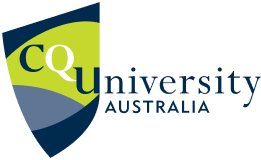Grant support transforms waste into sustainable building blocks
By Tiahna Fiddling
Using mud for concrete, repurposing sand and gravel to build roads, and turning tyres into bricks are three CQUniversity research projects to receive funding support from the Circular Economy Grants program.
Mackay's Resources Centre of Excellence (RCOE) awarded the grants valued at $50,000 each to the three innovative initiatives, with the aim to tackle regional waste challenges and advance sustainable practices in Greater Whitsunday Region businesses, the environment and the community.
CQUniversity Associate Vice-President (North Queensland) and BMA Chair – Automation and Future Work Skills, Professor Rob Brown said the grants were a testament to the University's commitment to sustainability.
“These research projects exemplify the power of innovation and collaboration in addressing the critical issue of waste management in our region," Prof Brown said.
“This is a great step forward for both the University and the broader community, as we work together to create a more sustainable future for our region.”
The Whitsunday Glass Roads project, led by Dr Farzeneh Tahmoorian along with Dr Muhammad Qureshi, will work to substituting fine aggregates with crushed glass in road base, reducing high impact raw material inputs in asphalt production and waste of a precious finite resource, glass.
In a separate project, researchers Dr Jay Sul, Dr Kumaran Suntharavadivel, Associate Professor Preethichandra and Dr Sarkar Noor Khuda will focus on integrating crumbed off-the-road (OTR) and commercial tyres into brick manufacturing in the Incorporating Crumbed Rubber for Brick Manufacturing project.
And in the third funded project, through the use of red mud and bagasse ash as supplementary cementing materials (SCMs), researchers Dr Farzaneh Tahmoorian and Dr Hassan Baji will drive sustainable alternatives to conventional cementitious materials, such as fly ash, with the locally available materials.
In addition to the three grants received by CQUniversity, the RCOE also awarded grants to NUTRICQ and Eco Barge Clean Seas.
RCOE CEO Steven Boxall said the innovation grant was oversubscribed, with six successful applicants receiving funding to take their projects forward.
“The quality of projects underscores the potential for our region to lead the way in circular economy practices, realising more value from Queensland’s resources and setting a new standard for sustainability," Boxall said.
RCOE is one of three regional centres involved in this pilot program intended to encourage the development of new circular economy solutions in different regions of Queensland.
The initiative is part of the State Government’s Circular Economy (Industry-Research) Program and managed by the Department of Environment, Science and Innovation to support industry-driven research in circular economy projects.
Minister for the Environment and the Great Barrier Reef and Minister for Science and Innovation, Leanne Linard acknowledged the significant impact of these grants for regional communities.
“The Miles Government is committed to fostering innovation that drives the transition to a circular economy," she said.
“The Circular Economy (Industry-Research) Program Grants are an essential part of this mission, empowering local businesses, researchers and communities to develop practical solutions that reduce waste and benefit our environment.
“The high calibre of applications reflects the growing momentum and creativity within the Greater Whitsunday Region.
“We look forward to seeing these projects come to life and contribute to a more sustainable future for Queensland.”


